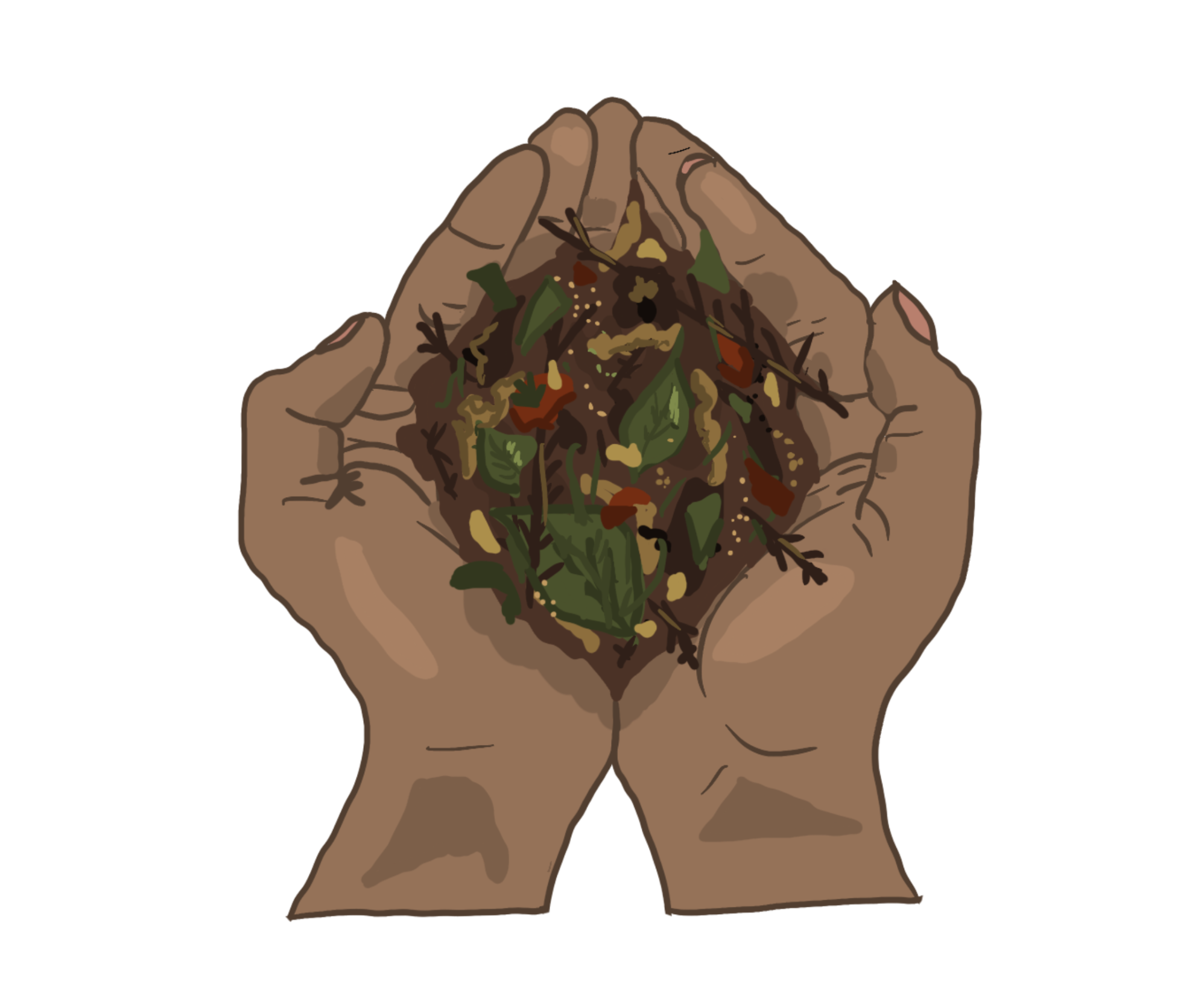Mid-fall in the Bowdoin Organic Garden: clearing out
October 29, 2021
 This
piece represents the opinion of the author
.
This
piece represents the opinion of the author
.
 Sophie Burchell
Sophie BurchellThough I read last week’s Bowdoin Student Government minutes, I’m not going to write about the Board of Trustees. I’m also not going to comment on the one to two percent of our endowment invested in oil and gas companies, which, if you do the math, means that Bowdoin invests between 25 and 50 million dollars in the world’s foremost fossil fuel giants. Instead, this week I’m going to share the pleasure of clearing garden beds.
Over at the Bowdoin Organic Garden, we’ve been taking out all the annual plants that have enjoyed their time in the sun this summer and fall. Volunteers pull the central stems with care and take the roots and leaves out of the soil. For a moment, each plant flies through the air. We uproot peppers, tomatoes, kale, rhubarb and basil in this way. The plants hang for a moment, giddy (I like to imagine) and land on the wheelbarrow. They’re then taken to the compost pile behind the greenhouse, where they rest for the winter, and in the spring they become soil (high-quality soil, too—the garden just passed its organic recertification test for the year!).
I gather a bundle of basil from the wheelbarrow, and the dry, rattling leaves flood my senses with a smell that takes me back to my home kitchen, when my parents made lasagna for the holidays. In my arms, the bundle is tight and knit with memories of a different garden from years ago. I heave the basil onto the compost pile, and the aroma abates for a moment, bringing me back to this cloudy day. My fingers are painted in fresh soil, and the piece of my brain that always thinks ahead—the one that asks: “what now? what next?”—is quiet. My shoulder muscles loosen a little.
I turn over loose thoughts like rocks and rotten potatoes (should we find any among the plants we pull out). I’m troubled by the future but faithful to some idea of shared survival. I’m more troubled by the present, and this statement in the Orient last week wears on me: “My generation has completely screwed this up,” Rose said. “So we’re gonna rely on you to do this.” If I may, I’d like to offer President Rose some feedback on how to talk to young people about the future. When you say that you are relying on another generation, it appears to me that you’re giving your own generation an out—a way to be okay with not taking action. That feels frustrating when your own generation holds the positions of power. When older people say these things—and I’ve heard them more times than I can count, mostly said with good intention—they strike me as if they are evading responsibility. But, excuse me, I’m in the process of helping prepare the garden beds for the winter. The first frost is extremely late this year because of an entirely too-warm fall, so forgive me if I speak from a place of urgency.
If you’ve passed by the garden in the past week, note how the beds are mostly bare. Where tomato plants once stood, negative space stands as a testament to what once grew, flourished, and then, in the process of decay, was helped along to the compost pile, where it turned into new life. The bare soil is a rich mixture of years of memories and matter accumulated from past growth and decay. But the lack of flourishing, happy-looking life does not mean that we stop. Instead, we prepare for the next season. The garden beds will be reshaped and neatened up. We are looking steadily ahead at how we can help the ground recover for longer days around the corner. Come out to the garden and volunteer—help us sow new seeds.

Comments
Before submitting a comment, please review our comment policy. Some key points from the policy: